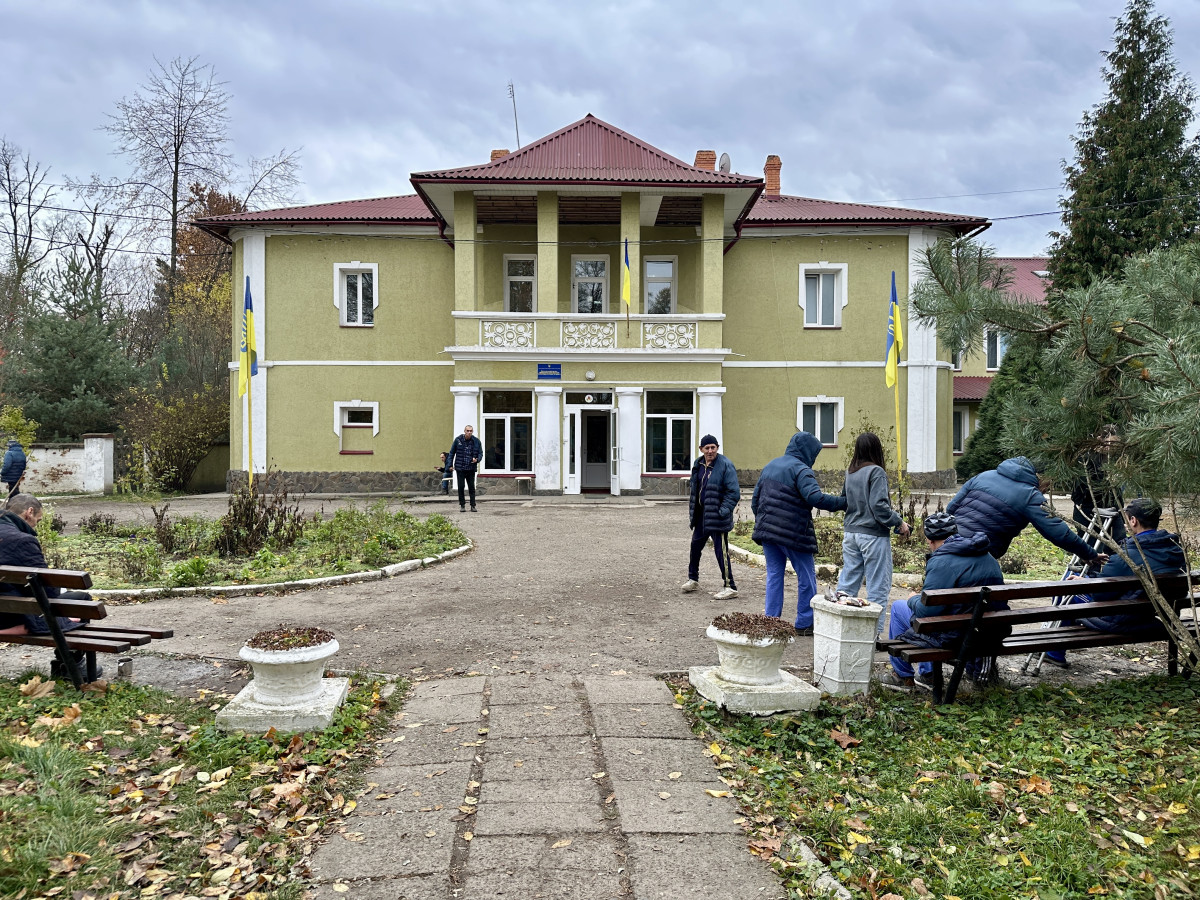Russia’s war in Ukraine has endangered the lives of millions of people; in particular, it is deeply traumatic for those living with psychological disorders. For such people, evacuation and adaptation are particularly difficult.

Because of shelling and the advance of hostilities, dozens of social institutions in Ukraine have been forced to relocate. One such institute, the Popasna Regional Psychoneurological Boarding House,
relocated from Luhansk Oblast to refuge in a picturesque corner of Bukovyna. Despite the relief of a move to safety, the staff had to start from scratch, as all their property remains in the occupied territory. Thanks to the support of a private donor from the Czech Republic, Ivo Lukačovič, we purchased modern kitchen appliances and equipment for a rehabilitation room. This will significantly improve living conditions for people who need special support and care.
Situated on a former noble estate, with a cozy park, vast apple orchard, healing air—it would be hard to find a better place for recovery. But the journey to this picturesque corner of Bukovyna was long. For nearly eight years, the staff and patients of the Boarding House lived practically on the front line. In March 2022, they came under fire. Amid flames and destroyed buildings, they conducted an urgent evacuation.
“We didn’t have enough transport, so we evacuated only the residents. All the equipment and inventory were left behind. We evacuated 127 people from Popasna, including four women. Our resident ranges from 30 to 90 years,” says the boarding house director, Oleksandr Kolesnikov.
At first, the patients were given temporary shelter in a hospital in Chernivtsi. Later, they moved to a former tuberculosis sanatorium in the village of Krasnoilsk. The building was in good condition, but everyday living spaces had to be arranged from scratch—places for sleeping, eating, and hygiene.
“When we arrived, almost all the equipment was out of order. There was only one electric stove and a wood-burning oven in the kitchen. We appealed to many organisations for help, including People in Need,” adds the director.
In the kitchen, lunch is being prepared. The residents help peel apples for compote — picked right here in their own garden. The smell of fried cutlets drifts from the kitchen. It’s not easy for the women: they have to cook for 88 residents. Many processes — such as kneading dough, peeling and cutting vegetables, and washing dishes — are still done manually.
Thanks to the support of Ivo Lukačovič from the Czech Republic, we purchased new equipment and appliances that will greatly ease the staff’s work.
“Instead of three shifts, we only have two working in the kitchen. Most of our cooks are local women, and there’s a shortage of qualified staff. The new equipment will make their work much easier. Our dietician is delighted—now we can diversify the residents’ menu,” says Oleksandr Kolesnikov.
In addition to kitchen equipment, we also delivered equipment for physical rehabilitation. Various exercise machines, a functional table, balls, dumbbells, and a couch will form the basis of the rehabilitation room.
The Boarding House also conducts social rehabilitation. This year, three residents became students of a technical school.
“For more than two months now, our residents have been studying to become plasterers and painters. They live in the school dormitory and cook their own meals. At first, we helped them, but now they’ve become independent,” proudly shares social worker Yuliia Bachuk.
Education gives patients a chance to find work and start a new, independent life.
Interpersonal relationships are also occuring within the Boarding House itself—four couples have formed among the residents. There’s an opportunity to create supported housing for them in a separate building—but it still needs renovation.



